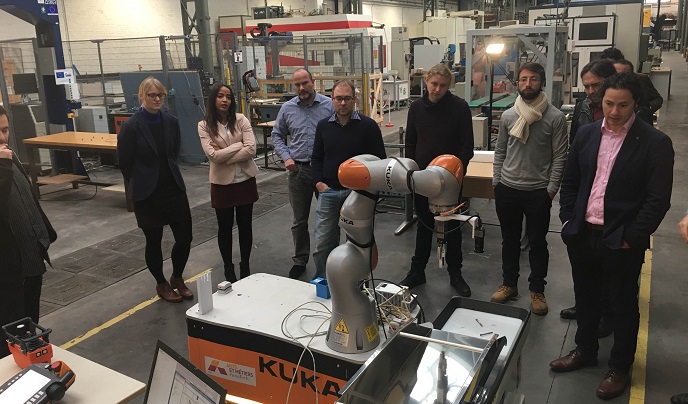Helping cities transition from four wheels to two
Did you know that one of the most efficient ways to reduce both urban congestion and air pollution can be found on two wheels? “Cycling is a powerful, cost-effective way to help cities become a more sustainable, equitable and economically prosperous place for citizens,” says Mario Gualdi, lead researcher at the Institute of Studies for the Integration of Systems (ISINNOVA). However, before any of this can happen, cities must first put into place the proper cycling infrastructure and services – which is exactly what the EU-funded CIVITAS Handshake project set out to do.
Cities where cycling is the norm help others to boost uptake
Led by ISINNOVA, the project helped 13 ambitious European cities become more liveable places, improving conditions for cycling as an everyday mode of transport. “CIVITAS Handshake is the story of five years of close-knit international cooperation supercharged by 50 years of combined knowledge coming from our frontrunning cities,” explains Gualdi. These frontrunning cities, which include Amsterdam, Copenhagen and Munich, leveraged their deep cycling roots to mentor cities such as Bordeaux, Bruges, Cadiz, Dublin, Helsinki, Krakow, Manchester, Riga, Rome and Turin to make the transition from four wheels to two. This included supporting them to not only improve the quality of available cycling infrastructure, services and communications, but also to identify opportunities for innovation in areas like intelligent transport systems, bike sharing and parking, governance and decision-making. For example, Amsterdam worked with Dublin to help the city implement intelligent transport solutions for better managing cycling flows and data collection. The Dutch capital also mentored its Irish counterpart on developing its cycling infrastructure network. As a direct result of this collaboration, Dublin now benefits from eight trials for collecting cycle data – data that it is using to ensure all traffic signalling includes bike detection capabilities.
The importance of international mentoring and cooperation
This is just one example of how fostering cooperation across borders is the key to successfully delivering policies and solutions. “Working in isolation is costly, short-sighted and inefficient,” notes Gualdi. “In a world dominated by global trends and challenges, effective and timely solutions require a collective response based on our collective knowledge.” According to Gualdi, international, peer-to-peer mentoring and cooperation becomes the tool of choice for sustaining deep cultural transformation, such as that entailed by cycling. “It allows us to address, in an informed and trusted way, the queries and preoccupations of the involved urban stakeholders,” he explains. But it wasn’t just the mentee cities that benefited. “Even our frontrunning cycling cities learned a lot, both from their peers and from those striving to become a cycling-centred city,” adds Gualdi.
Climate-friendly cities start with cycling
The challenge now is to consolidate both the knowledge gained and the collaborative process perfected during the project so additional cities can benefit too. “Knowing that there can’t be climate-friendly, thriving cities without a strong role of cycling, we have established the International Cycling Community of Practice,” remarks Gualdi. This independently funded portal serves as a one-stop shop for all cities worldwide looking to leverage the lessons learned during the CIVITAS Handshake project. “Policymakers, practitioners, researchers, industries, consultants, businesses, NGOs and civil society can come together to help their cities build and achieve their cycling plans faster and more effectively,” concludes Gualdi. The initiative is currently in the fundraising phase and is expected to launch in early 2023.
Keywords
CIVITAS Handshake, cycling, cycling infrastructure, transportation, cities, intelligent transport systems, bike sharing







